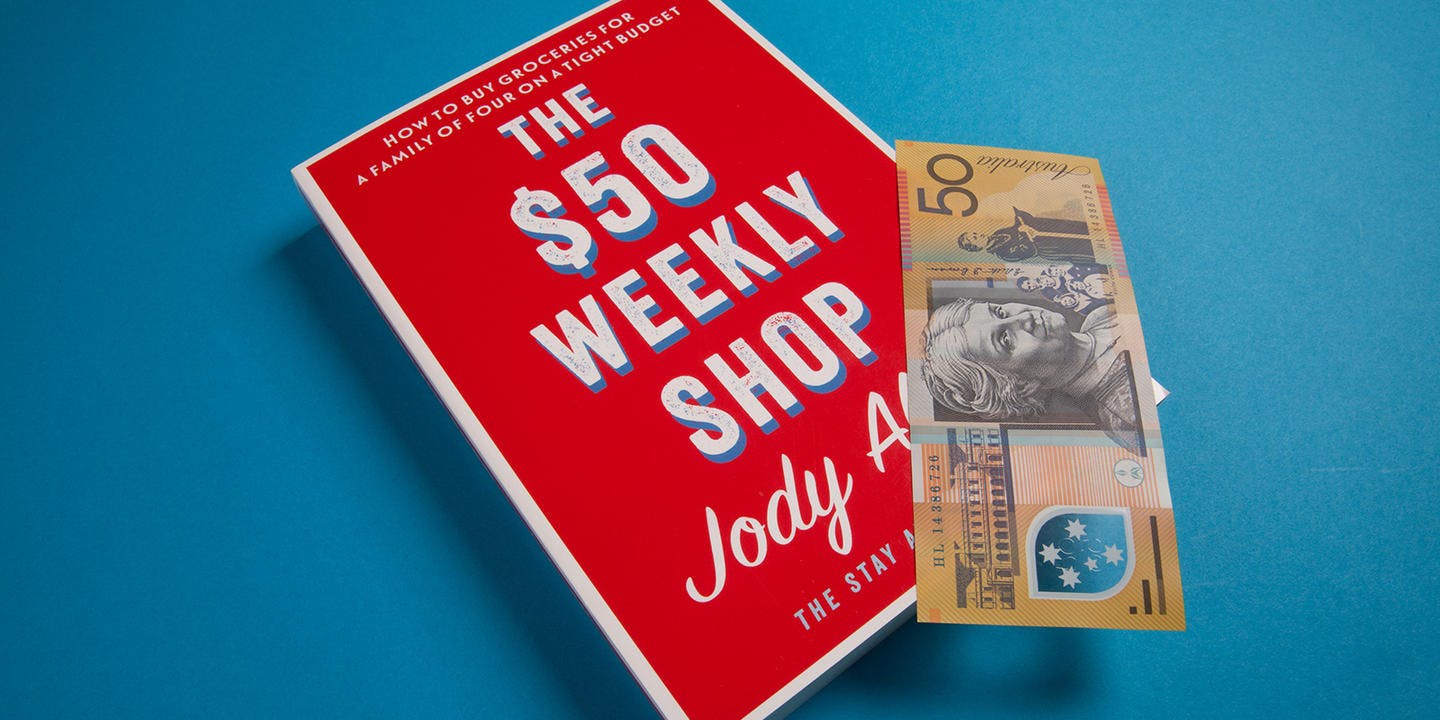Waste-not, want-not with Jody Allen’s The $50 Weekly Shop.
During the Great Depression of the 1930s, people wasted nothing. Every scrap of everything was used – often more than once. The mantra of the depression era was ‘Use it up, wear it out, make it do, or do without.’ These tips go beyond the wastage of food, but I wanted to put them in here because they are such an amazing contrast to the entitled, wasteful, throwaway society we live in today.
- Make it stretch: Get another week out of your bottle of sauce or jar of mayo by adding a few drops of water, giving it a shake and keeping it upside down! Then reuse the container for next week’s homemade sauce.
- Reuse and recycle: Think twice before throwing anything out. I keep all of the jars that I’m not using to give to a friend of mine who likes to make jam, and I get a few jars of goodies in return. I even keep butter containers – they’re great to use for fruit for the kids’ school lunches.
- Refurbish or buy second-hand: Rather than buying a new lounge suite or dining room table, look at buying a second-hand one in good nick. See if someone is giving one away that you can do up yourself, or look at the one you currently have and see if it will do for a bit longer or can be sanded back, painted or made to look new again.
- Grow your own food: You don’t need much room to grow a few herbs or some lettuce, tomatoes or zucchinis, and it is a truly rewarding experience. Plus, supermarket tomatoes always taste terrible unless you can afford the expensive truss ones. There is nothing like home-grown goodness!
- Save up for things: These days, people seem to have lost the ability to wait. We expect to press a button and get everything we want instantly. As a kid I couldn’t just go and buy whatever I wanted – my parents gave us pocket money and we had to work towards it. Do that now and save up for something rather than putting it on the credit card – it will certainly make you appreciate it more.
- Make it at home: Instead of going out for burgers or pizza, make them at home. Cook more and go out less. Spend more time with your family and less time shopping – it’s not only cheaper, but benefits how close you are as a family. Think about making your own ice cream, bread and relish. Get the kids involved in baking muffins, biscuits and slices.
- Eat less: Compared to earlier generations, we are eating way too much and moving way too little. Our portion sizes are huge, which is one reason why we are an obese nation. We’re also eating way too much sugar. Living frugally is also about managing portion sizes – you can’t help but lose weight as a result. It is a win–win situation.
- Separate your needs and wants: You might want the latest iPhone – but do you really need it? You might want Netflix, but you don’t need it. Think about how you can make do with what you have. Eating out or getting takeaway is a prime example. For a single night’s $30 chicken meal, you could buy enough groceries to feed your family for at least three days – probably more! Think before getting that card out of your purse.
- Find things to do that are free: Not everything worth doing costs money! In fact, sometimes the opposite is true. Check out your local library – you’ll be amazed at what you can borrow (movies, books, music, games). Or simply Google ‘free entertainment’ in your area. Go to a local market or simply get the kids outside playing a game of cricket. There really isn’t any need to spend a fortune on entertainment when you can save a heap and still have a great time – at home!
- Encourage everyone to contribute: If you are living as frugally as possible and still can’t manage to make ends meet, it might be time to find ways to bring more money into your household. Can you or your partner do some additional hours? There are always options for making more money – packing shelves, delivering pamphlets, writing articles, cleaning. Are your kids old enough to do some babysitting or odd jobs around the neighbourhood? And if your kids are all grown up but still living at home, charge them rent or board.













